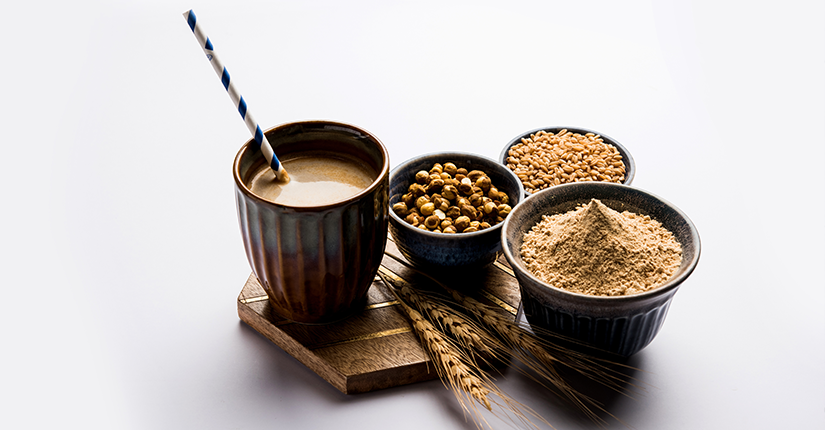Dietary Modifications for Management of Ataxia
By Nmami Agarwal 25-Sep 2020 Reading Time: 6 Mins

Ataxia is a degenerative disease of the nervous system. It is a clinical demonstration indicating dysfunction of the parts of the nervous system that coordinate movement, such as cerebellum.
Symptoms, though vary from person to person, include:
- Lack of coordination
- Trouble eating and swallowing
- Difficulty walking and balancing
- Gait abnormalities
- Troubled eye movements
- Tremors
- Mumbled speech
- Vertigo/Dizziness
- Depression
- Fatigue
Causes of ataxia?
- Hereditary:
- Acquired:
Hereditary ataxias are caused by a defect in a gene, inherited by your parents.
In case of an acquired ataxia, there is an external cause. This can include; vitamin deficiencies, autoimmune conditions, some infections, exposures to toxic substances or drugs (especially alcohol), various cancers, and many more.
Treatment
An individual with ataxia must focus on enhancing the quality of life. Diet coupled with regular exercise is important in order to maintain normal bodily functions, increased energy, better mood, less stress and suitable body weight.
Dietary Modifications For Managing Ataxia:
- Restrict and eliminate simple carbohydrates.
- Make protein, fats and fiber a part of your diet.
- Foods to avoid:
- Nutrients you must include:
- Vitamin K for maintaining bone health:
- Omega-6: Found in soybean oil, corn oil, almonds.
- Omega-9: Found in cashews, olive oil, almond oil, avocado oil.
Often patients diagnosed with ataxia crave high sugar food to tackle depression. But, this can in turn increase the chances of feeling depressed or fatigued. Therefore, increase the intake of complex carbohydrates in your diet, such as, starchy veggies, legumes and whole grains.
Avoid processed, junk food which is high in preservatives and additives.
Increase the intake of fluids each day. But avoid having carbonated beverages, packaged fruit juices as it has high quantities of sugar. 2-3 liters of water is recommended.
Total fiber intake in adults should be 30-40 grams each day. Hence, to meet this, have more whole fruits and raw vegetables.
Include nuts and seeds as they are a rich source of good fats and other micronutrients like vitamins- E, B6, niacin and folate; and minerals such as magnesium, zinc, plant iron, calcium, copper, selenium, phosphorus and potassium.
Nitrate/Nitrite containing foods such as, bacon, hot dog, sausage, ham, smoked fish, etc.
Monosodium Glutamate(MSG) present in fast food, chips and snack food, seasoning blends, canned soups or instant soup mixes, condiments like- ketchup, mayonnaise, soy sauce, frozen meals, such as- mac and cheese,frozen breakfast, etc. Inclusive of all foods containing hydrolyzed protein, found in most processed eating items.
Vitamin B-12- Found in animal products, including fish, meat, poultry, eggs, fortified foods like nutritional yeast, milk, and milk products.
Vitamin C -Found in broccoli, brussels sprouts, cauliflower, peppers, berries, etc.
Vitamin D-3 for better absorption of calcium- Found in fatty fish, fish liver oil, egg yolks, mushrooms, cow’s milk and fortified foods.
Found in green leafy vegetables, kiwi, avocados, pomegranate, dried figs.
fatty-acids like Omega-3: Found in salmon, flax and chia seeds, walnuts, etc.
flavonoids for their neuroprotective benefits and reducing inflammation: Found in kale, peaches, berries, lettuce.
Importance of exercise
In the respect of exercise, you might want to consider the role of a physical therapist having an experience with movement disorders. Any person suffering from ataxia is recommended to exercise for at least 30-40 mins each day. Some specifically tailored exercises can even slow the development of neurologically led balance problems.
Over to you
Ataxia, depending upon the type, needs specific attention. Having a holistic approach can help keep it in control. Therefore, include wholesomeness year-in-year-out. Drink more water to flush out the potent toxins, include more fresh and local fruits and vegetables, dry fruits and nuts, seeds, legumes and whole grains. Exercise plays a substantial role in keeping you active and your bone health in place. However, this is not just enough if you take stress or are suffering from depression pertaining to or leading to ataxia. Look out to take a professional’s help to keep your mental health in shape too. Ataxia though, is largely incurable. But, it is through the right attitude and lifestyle changes that you can definitely keep it in check.





















